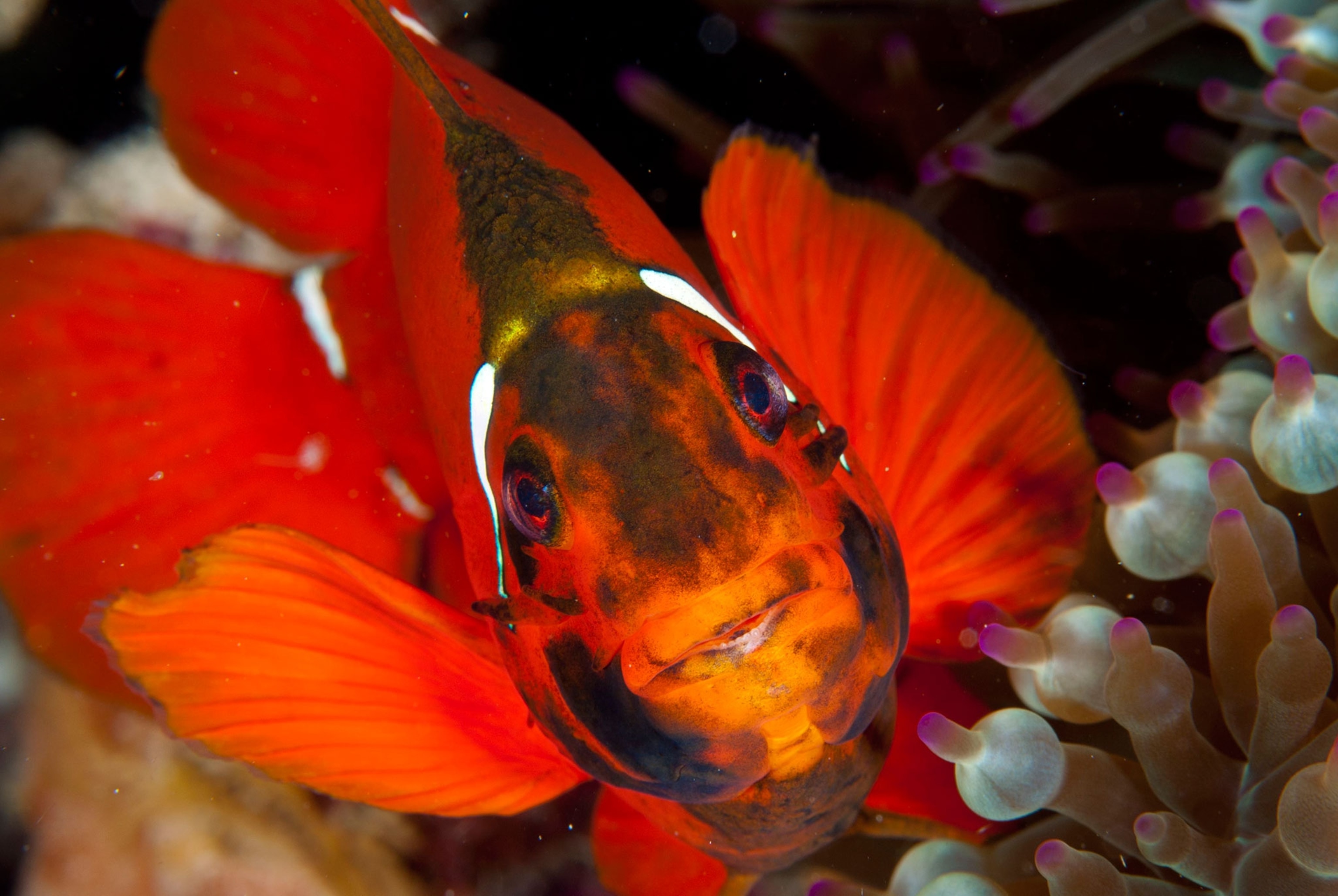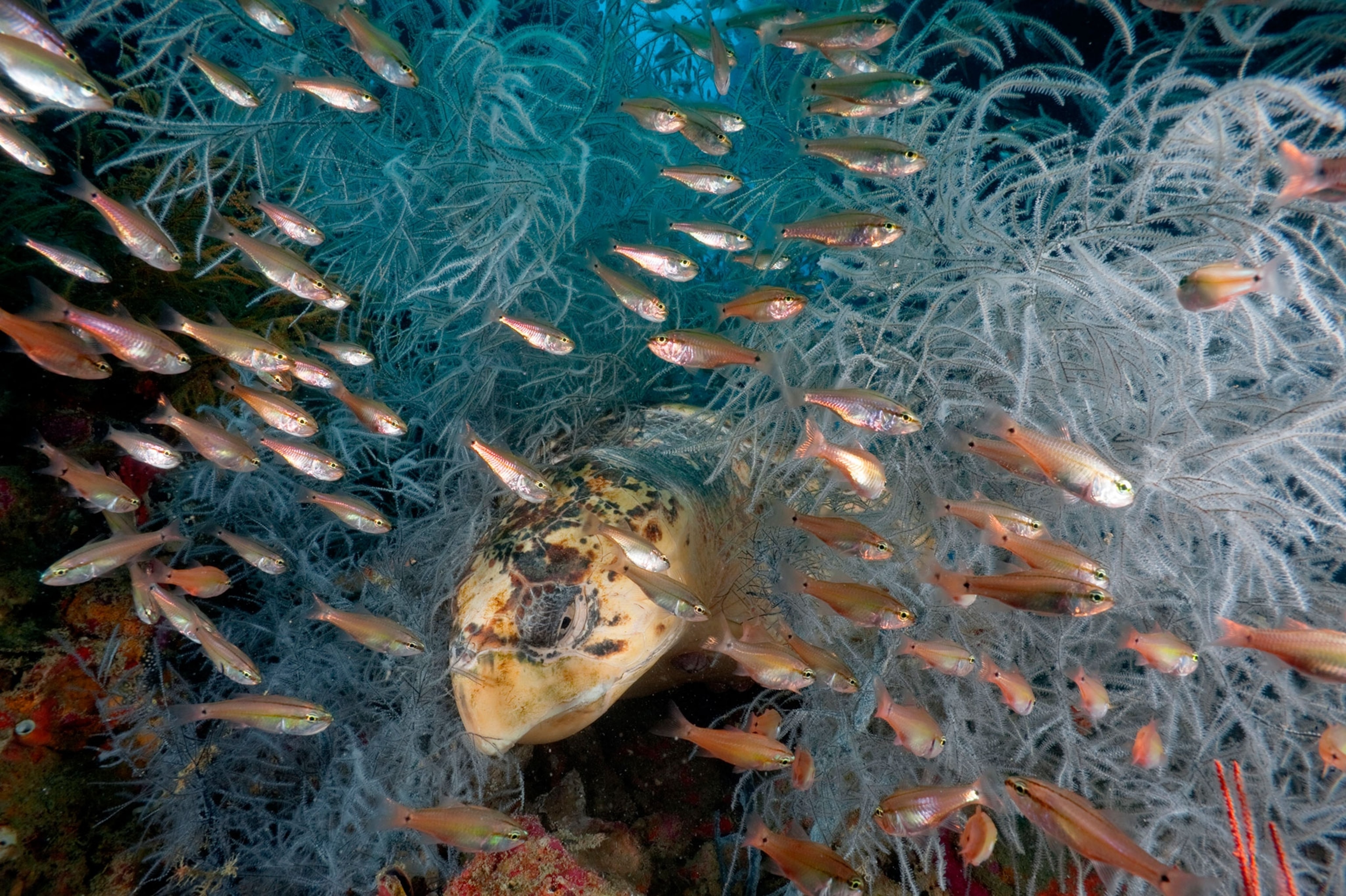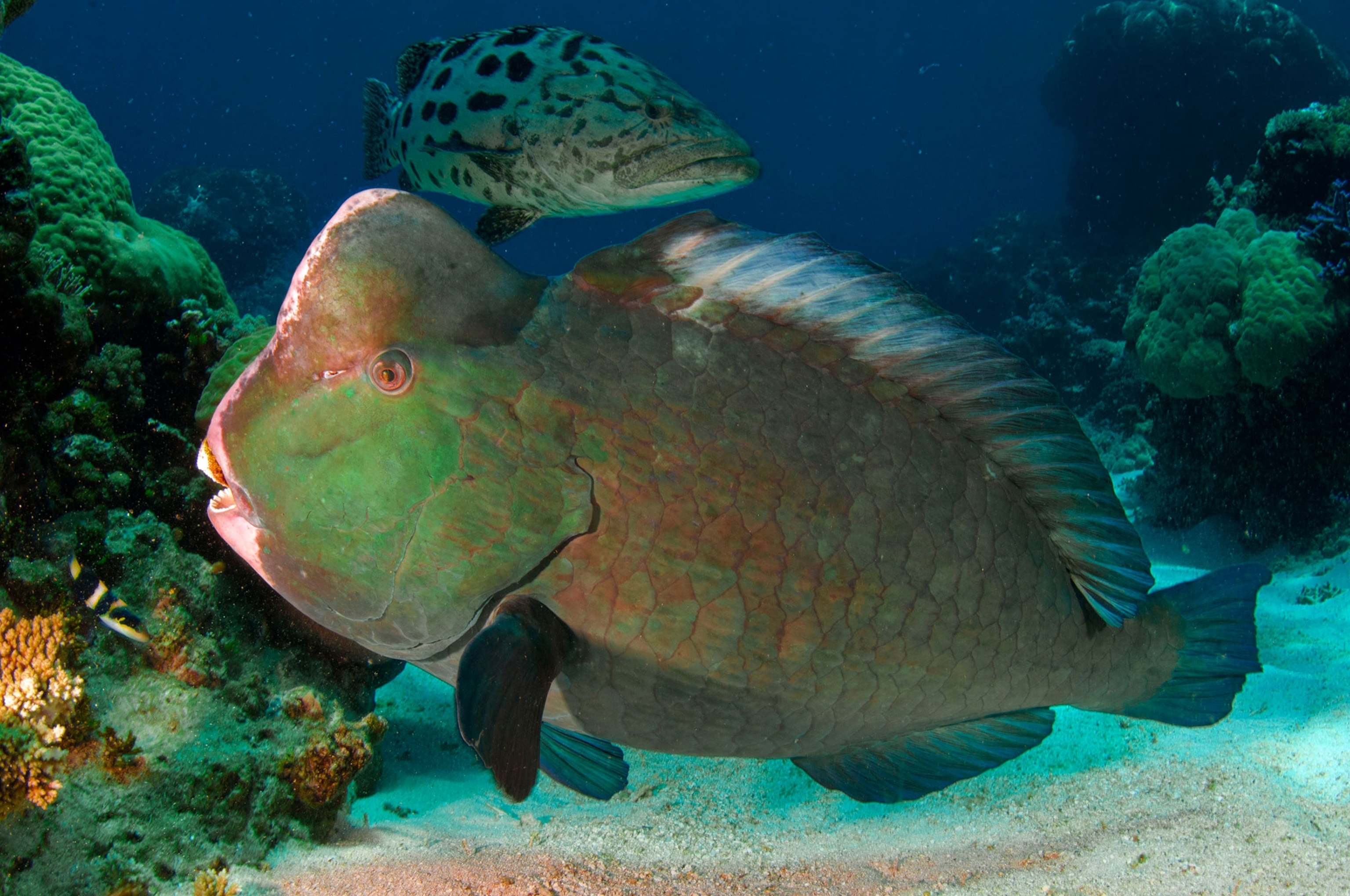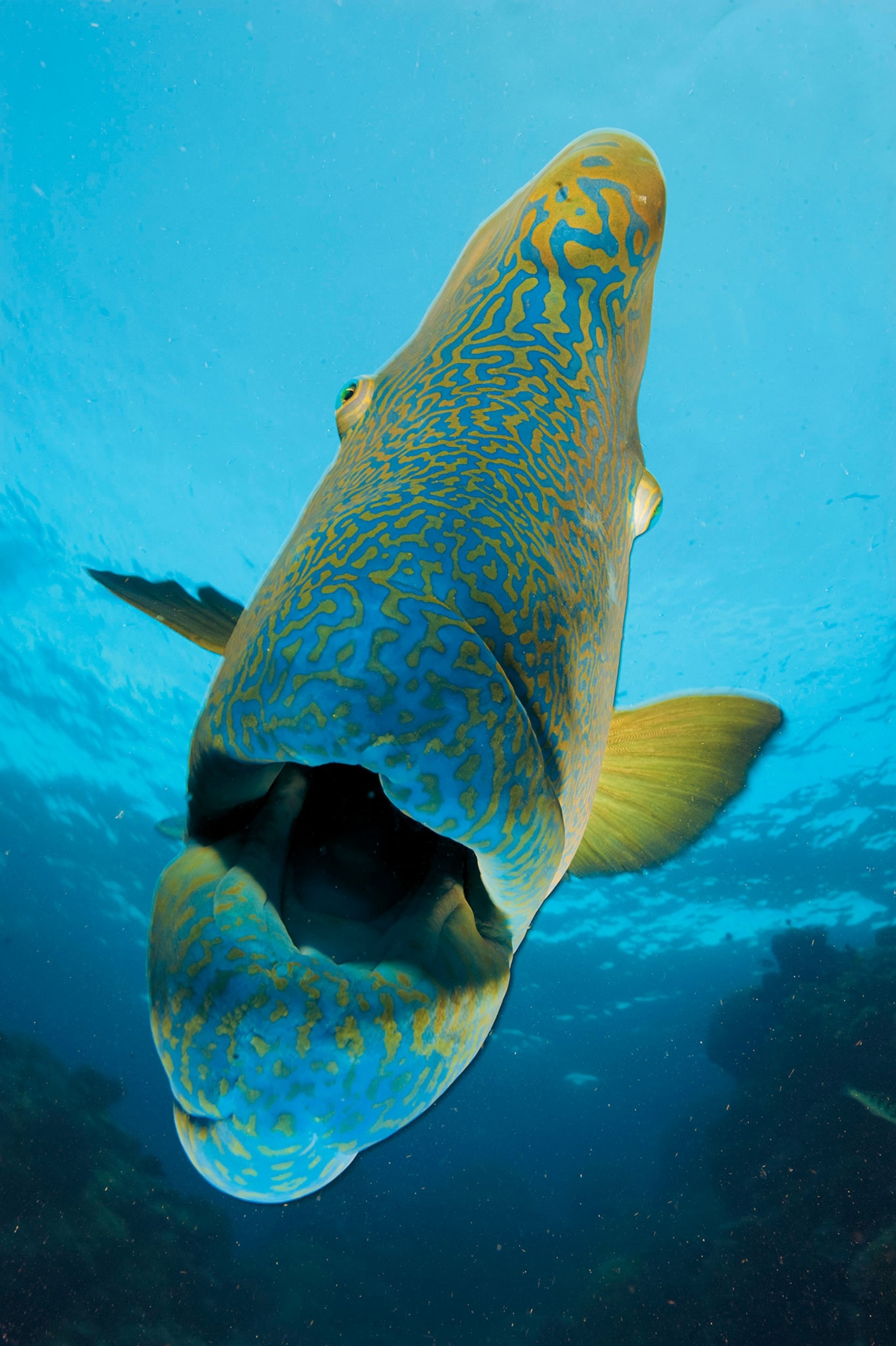
Hawaii Enlists Urchins to Help Corals Resist Algae Invasion
In Kāne'ohe Bay, invasive algae was smothering coral reefs. But scientists have found a clever new way to clean them up.
In the 1970s, a researcher at the Hawai’i Institute of Marine Biology plopped some new, non-Hawaiian species of algae into the waters of Kāne’ohe Bay, on Oahu. He thought the new species might be hardy, fast growers good for aquaculture businesses. But it quickly became apparent that they were far too successful: They spread far beyond their initial planting sites, smothering the colorful corals that lined the bay's floor.
Since then, the floor of the bay has been clogged with the algal fronds. Many clean-ups have been attempted, but none were particularly successful. But now, researchers think they've found a strategy that works, providing a dose of hope for the coral reefs of this ecologically and culturally important Hawaiian bay.
First, divers go down and give the algal infestations a quick haircut, feeding the fronds into the “Super Sucker,” an underwater vacuum system that whooshes the trimmings up to a boat bobbing nearby. Then, they plop down a phalanx of native urchins, “grazers” that can munch through several times their body weight each day. They slowly chow their way across the surface of the reef, clearing the remaining algae and re-exposing the coral beneath. [Learn how an urchin use its entire body as an eye].
“We use them like goats,” explains Brian Nielson, the lead author of the new study and an aquatic biologist with the Hawaii Department of Land and Natural Resources in Honolulu.
The Underwater Invasion
Some species of algae occur naturally, interspersed throughout the colorful coral colonies of the reef. In healthy reefs, “grazers” like urchins and herbivorous fishes keep that algae under check. But if fish and urchin populations drop—because of overfishing, pollution, or other causes—the reef loses its janitors, and the algae grows unchecked. [What is an invasive species?].
For a while, managers tried to trim back the algae manually. They’d dive down to the reefs and cut off the worst of the algae, trying to expose the coral underneath to the sunlight it needs to survive.
“It's exhausting work,” says Nielson. “We used to spend six to eight hours a day in the water pulling algae. When you go to sleep at night, you see algae in your dreams.”
They knew they had to figure out a self-sustaining system. So why not recruit the natural grazers to help with the clean-up effort? If they could get enough of the algae-munching native “collector urchins” onto these reefs, maybe they could get the reef system back into balance, with the grazers doing the bulk of the maintenance work that humans had struggled with. [See what other sea urchins look like].
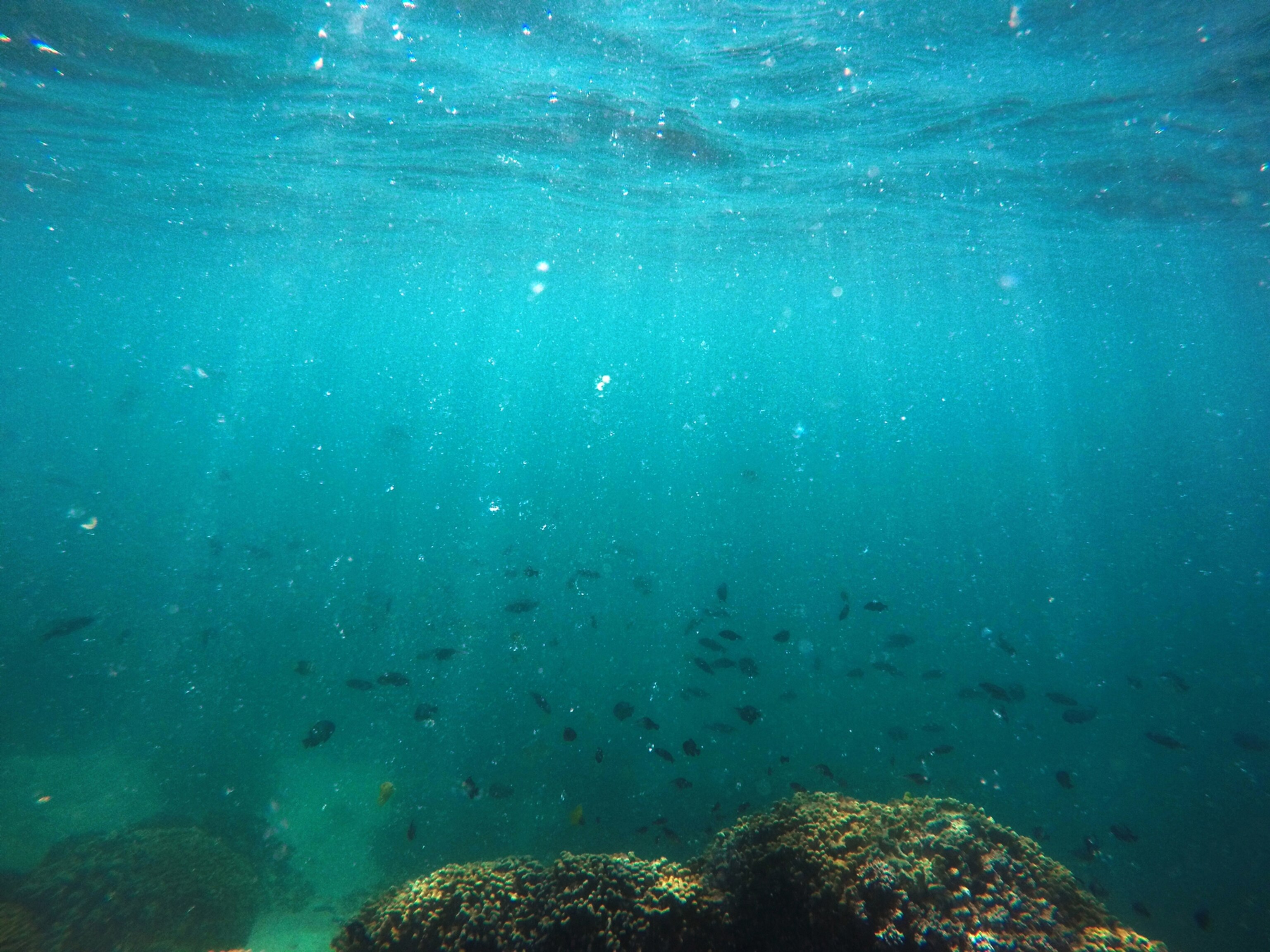
“You want to have a system that's self controlled, in equilibrium,” says Iria Fernández Silva, a biologist at the California Academy of Sciences who was not involved in the study and has done similar research on the bay in the past, where the different players—the corals, the algae, the grazers—all work together to keep the system in balance. Really, she says, “You want an ecosystem that works on its own, without us having to go in there every day to clean up the algae.”
Urchins To The Rescue!
But urchins didn’t seem to be able to graze back the vast, firmly-established fields of algae without a head start. So the team trimmed away the worst of the growth, making sure to spirit the trimmings away via the Super Sucker. Any little bits left behind were likely to regrow, so it was important to remove as much of the material as possible.
And then they brought trays full of baby urchins, which they had spawned and grown at a hatchery they’d set up expressly for this purpose, over to Kāne’ohe Bay. They placed the spiky, quarter-sized youngsters carefully – setting down about four urchins on every square meter of reef, for a total of nearly 100,000 over the course of two years.
The urchins did their jobs like champs. Over the two years of the experiment, the invasive algae cover was reduced by about 85 percent, allowing the reefs below to rebound and revitalize. And the effect has continued.
“With manual removal, you’re spending a lot of time and human hours and effort to take algae off the reef, and there’s no guarantee it won’t come right back,” says Kostantinos Stamoulis, a biologist at the University of Hawaii, Mānoa who was not involved in the study. “And in many cases that's exactly what happens. With biocontrol, you're letting nature itself take care of the problem.”
Now the question is whether this approach can scale up. The team is looking to test it on other reefs, both in Kāne’ohe Bay and beyond.
Beyond Urchins
Stamoulis emphasizes that it’s also key to enlist the native herbivorous fishes in the clean-up process. He and colleagues have found that in a Marine Protected Area within the bay, where fish populations are bigger and more active, the invasive algae are less prominent. So he hopes that any future management plans include strong protections for fish.
“It’s really important to protect the herbivorous fish, given that this invasive algae is such a problem,” he says. “By protecting the natural herbivorous fish populations, you enlist a lot more soldiers in your line of defense.”
Scientists are pleased that the restoration efforts are working. But the costs are high: The urchin team spent over $800,000 to clean up about 25,000 square meters of reef, a patch about the size of six professional soccer fields. And this whole costly, intensive effort was caused by the completely avoidable introduction of a species that wreaked havoc on the native reef ecosystem.
“The great lesson, from this whole natural experiment in Kāne’ohe Bay,” says Fernandez, is “let’s think twice before we bring things from outside.”

